How Preparing for Pre-Employment Personality Tests Gives You an Edge for Job Interviews
Pre-employment personality tests can feel intimidating—but knowing what to expect makes all the difference. Learn how to prepare, what these tests reveal, and why taking one ahead of your interview can give you a real edge.


Back
5 mins read
You’ve revamped your resume, swept through job boards, and landed an interview. But just after making it through the first screening, a new hurdle emerges: the dreaded personality test.
You’re not alone. Today’s hiring teams increasingly use these assessments to dig deeper into who you are and how you work.
And if that anxiety just spiked? That’s precisely why you’re here.
But, can you really “practice” these tests—or worse, game the system?
The answer: No, you can’t fake your way to success.
But you can prepare. Familiarity helps ease nerves, sharpen self-awareness, and get you ready to respond authentically under pressure, especially useful if you’re prone to test anxiety.
What Are Pre-Employment Personality Tests—and Why Do Employers Use Them?
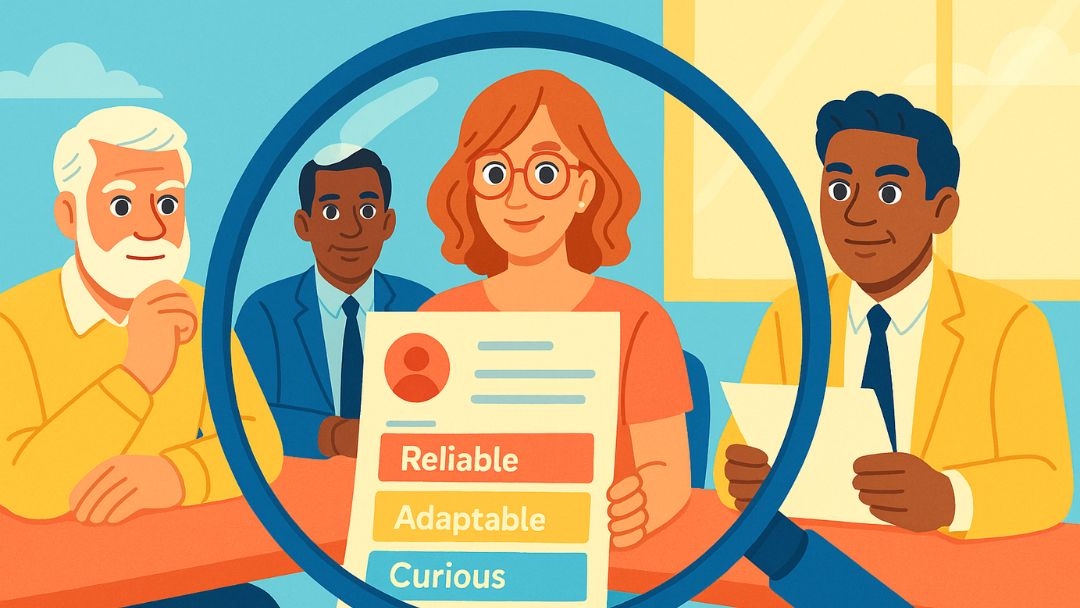
Pre-employment personality tests are designed to help employers understand how candidates might think, communicate, and behave in the workplace. They don’t measure your technical skills—they measure your temperament, reliability, emotional tendencies, and how well you’re likely to fit into the role or company culture.
These tests are becoming more common because they help companies:
- Narrow down large applicant pools quickly
- Predict how someone might respond to stress, feedback, or collaboration
- Avoid costly hiring mistakes by assessing cultural fit early
Tests like the Big Five are backed by research showing clear links between certain traits—like conscientiousness—and job performance. Others, like MBTI, are more about understanding communication style or work preferences.
And even if your future employer doesn’t use pre-employment personality tests, understanding how these tools work can help you feel more confident when it’s time to talk about who you are and how you work.
Why You Should Take One Even If Your Employer Doesn’t Require It
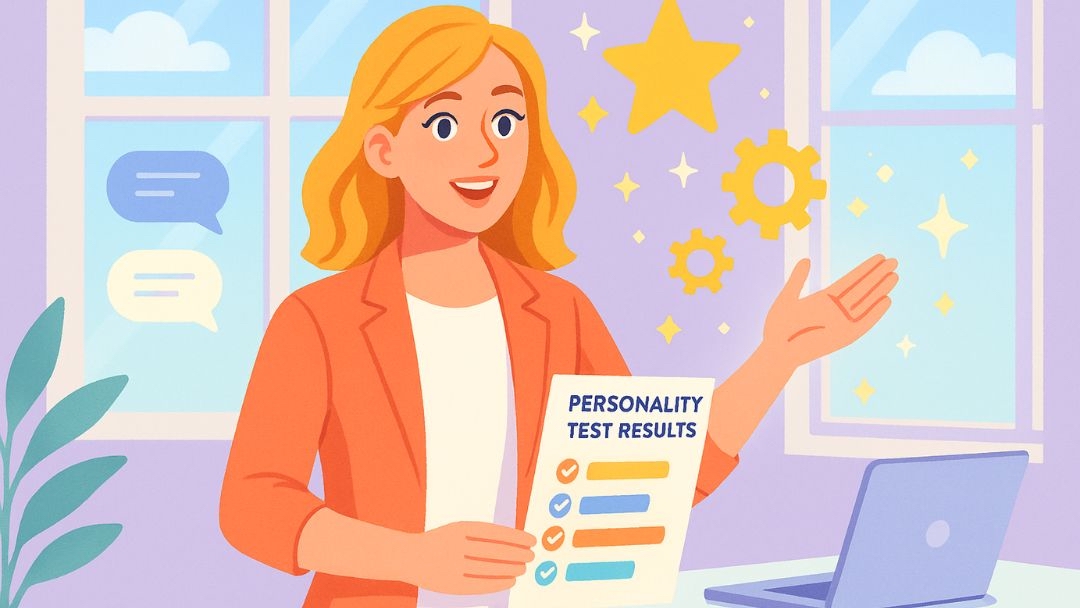
Even if you’re not being asked to complete a personality test as part of the hiring process, taking one on your own can be a game-changer.
It’s not about trying to “beat” the system. These tests don’t have right or wrong answers, and you can’t study your way into a different personality. But what you can do is walk into your interview with a much clearer sense of how you show up at work—your strengths, your blind spots, and the environments where you're most likely to thrive.
That includes soft skills—the personality-driven qualities like adaptability, emotional intelligence, teamwork, and communication that employers value just as much as technical experience. When you understand how your traits play into those skills, you can talk about them more clearly and confidently.
Taking a test ahead of time helps you:
- Speak more confidently about your strengths (and own your weaknesses)
- Reflect on whether the job is actually a good fit for you
- Reduce anxiety by getting familiar with the kinds of questions employers might ask
This kind of self-awareness doesn’t just make you a better candidate—it makes you a smarter job seeker. And that means you’re more likely to land somewhere that works for your personality, not just your paycheck.
Related: Why Can’t I Get a Job? 10 Reasons You Get Rejected
Types of Personality Tests Used in Hiring
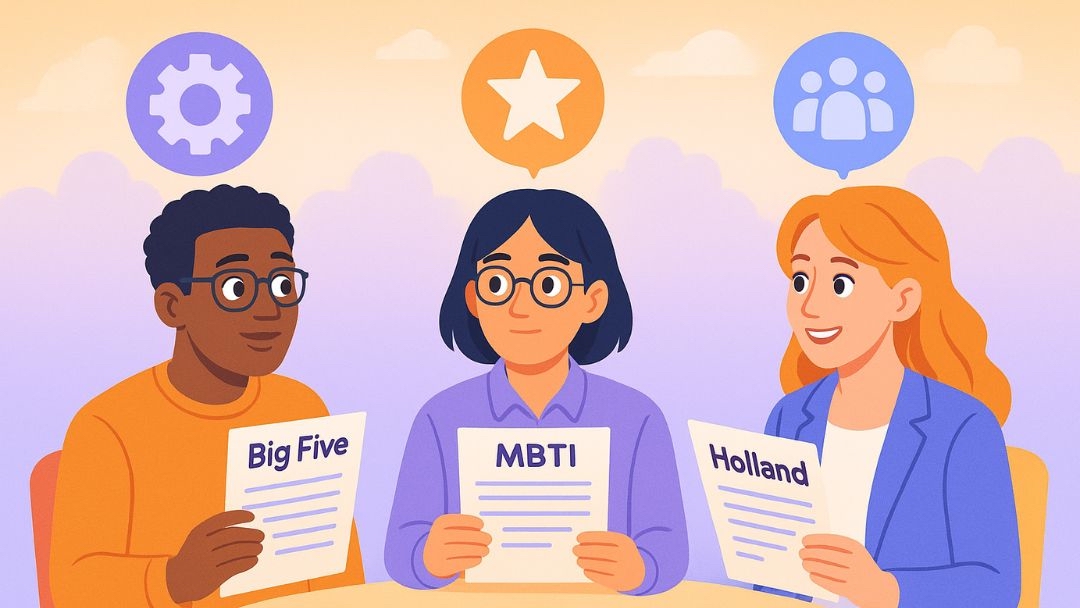
Three of the most common personality tests used in hiring include the Big Five, Myers-Briggs (MBTI), and the Holland Code. These assessments help employers evaluate how candidates think, communicate, and behave in professional settings, going beyond résumés and cover letters.
Each test highlights different traits or preferences, but all aim to predict how well someone might perform in a specific role or team. Some are backed by decades of research, while others are used more to understand communication styles or work fit.
Let’s take a look at these common employment personality tests—and why it makes sense to try them out for yourself before your interview.
Big Five Personality Test (OCEAN)
The Big Five model measures five core traits: Openness, Conscientiousness, Extraversion, Agreeableness, and Neuroticism.
- How employers use it: This is one of the most research-backed assessments, often used to predict performance and reliability, especially based on conscientiousness.
- What it reveals about you: It offers a clear snapshot of how you handle pressure, structure, collaboration, and emotional ups and downs.
- Why take it now: Practicing this test before your interview helps you better articulate your strengths, understand your ideal work environment, and anticipate questions about soft skills.
Myers-Briggs Type Indicator (MBTI)
The MBTI sorts people into 16 personality types based on preferences like introversion vs. extraversion and thinking vs. feeling.
- How employers use it: While not always part of formal hiring, MBTI is often used in team-building, leadership development, and understanding communication styles.
- What it reveals about you: It helps you identify how you prefer to make decisions, process information, and collaborate with others.
- Why take it now: Understanding your MBTI type ahead of time gives you language to describe your work style, improves your interview confidence, and prepares you for questions about how you handle feedback, structure, and collaboration.
Holland Code (RIASEC)
The Holland Code identifies your fit with six work environment types: Realistic, Investigative, Artistic, Social, Enterprising, and Conventional.
- How employers use it: While not as widely used as other assessments, some HR teams and career programs use the Holland Code to match applicants with roles that align with their personality and interests.
- What it reveals about you: It pinpoints the types of jobs, industries, and work environments where you’re most likely to thrive, not just succeed on paper.
- Why take it now: The Holland career personality test is one of the best tools for clarifying your job search. Taking it before your interview can help you target the right opportunities, explain your career goals clearly, and avoid roles that don’t fit your natural strengths.
How to Prepare for Personality and EQ-Based Interview Questions
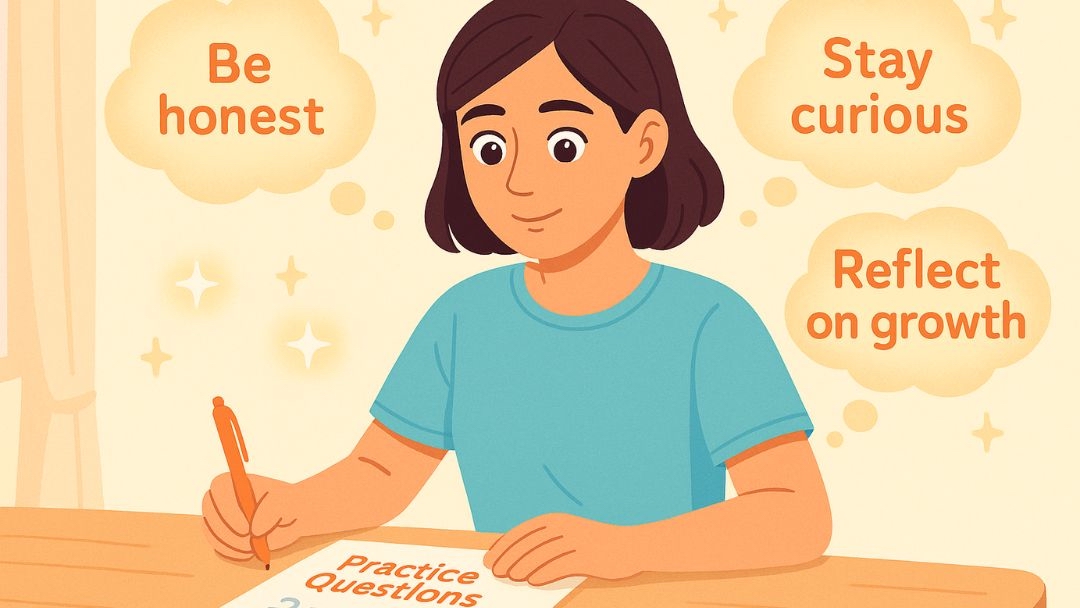
You can’t fake your way through a personality test—but you can walk in prepared. The key is knowing what to expect, understanding how you typically respond under pressure, and reflecting honestly on your results.
Here’s how to prep without trying to “game the system”:
- Take practice tests: Get familiar with the format and question styles, especially if you deal with test anxiety.
- Reflect on your results: Think about real-life examples that align with your strengths or growth areas. If your test shows you’re highly conscientious, how has that shown up in your work?
- Be honest, not strategic: Trying to outsmart the test usually backfires. It’s better to understand your traits and learn how to work with them, not around them.
But here’s the thing: Personality traits aren’t the only thing being evaluated.
Even if your employer never gives you a formal assessment, there’s something they’re always watching for—emotional intelligence (EQ).
Why EQ Matters in Job Interviews
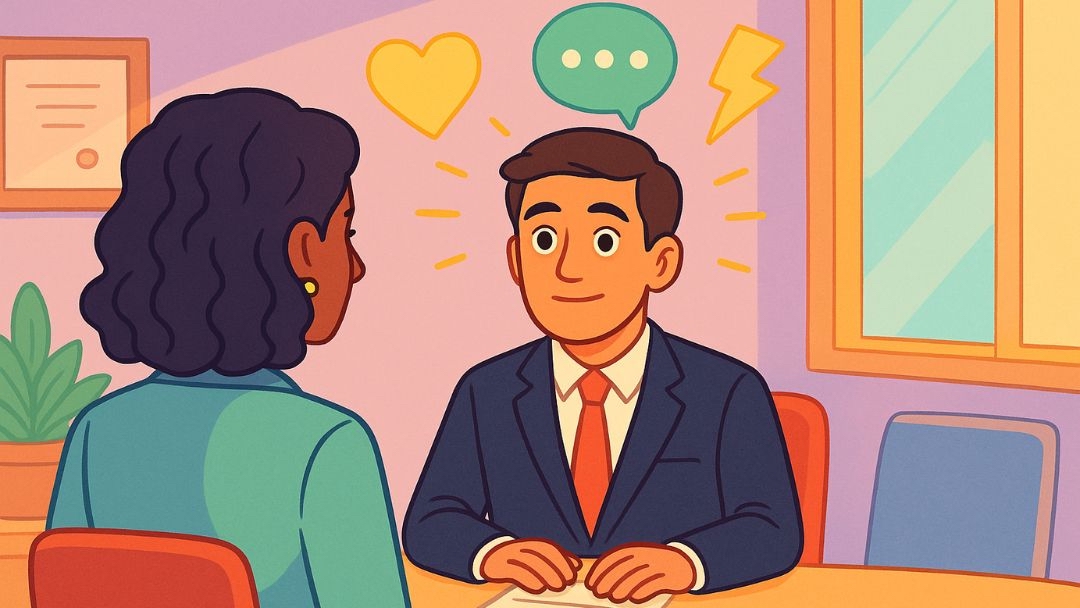
While EQ isn’t part of a standard pre-employment test, it’s one of the most important traits employers look for, especially during interviews.
Hiring managers pay close attention to:
- How you respond to stress or pressure
- How well you handle feedback
- Whether you take responsibility or shift blame
- How you talk about past conflicts or teamwork challenges
- If you show empathy and awareness of others
In short, they’re looking for emotional stability, self-awareness, and good judgment—especially in roles that involve people, communication, or leadership.
Want to be ready for those unspoken expectations?
Check out our guides to emotional intelligence in the workplace and interview questions HR uses to assess EQ.
Why It’s Worth Taking an EQ Test Now
Just like practicing a personality test, taking an emotional intelligence test can help you:
- Understand how you react under stress
- Identify blind spots that may show up in interviews
- Prepare thoughtful examples of emotional self-regulation, resilience, or empathy
Start Smart: Try the Tools Before the Interview
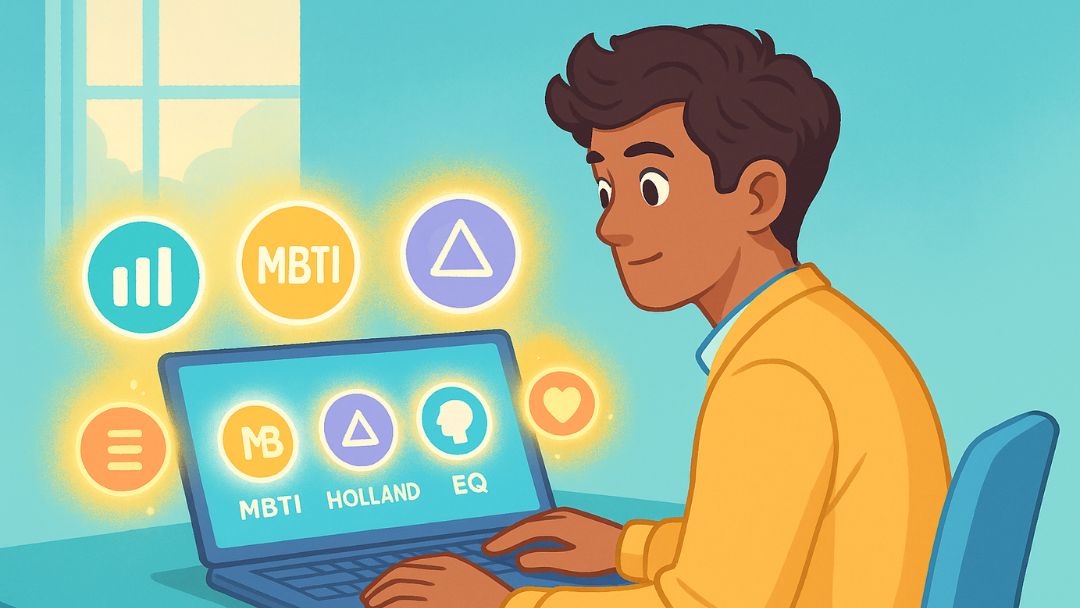
You don’t have to guess what employers are looking for—and you don’t have to walk into your next interview blind.
Whether it’s understanding your personality, uncovering your ideal work style, or sharpening your emotional intelligence, the best thing you can do right now is prepare with purpose.
With BrainManager’s 7-day all-access pass for just $1.95, you can take all of our premium personality tests—including the Big Five, 16 Personalities, Holland Career Personality Test, and Emotional Intelligence—plus free quizzes like our work values test and time management assessment.
When you continue with a membership, you’ll unlock unlimited retakes and gain access to a growing library of self-improvement and career development resources.
If you’re serious about landing the right role—not just any role—this is where you start.


Return to Blog




